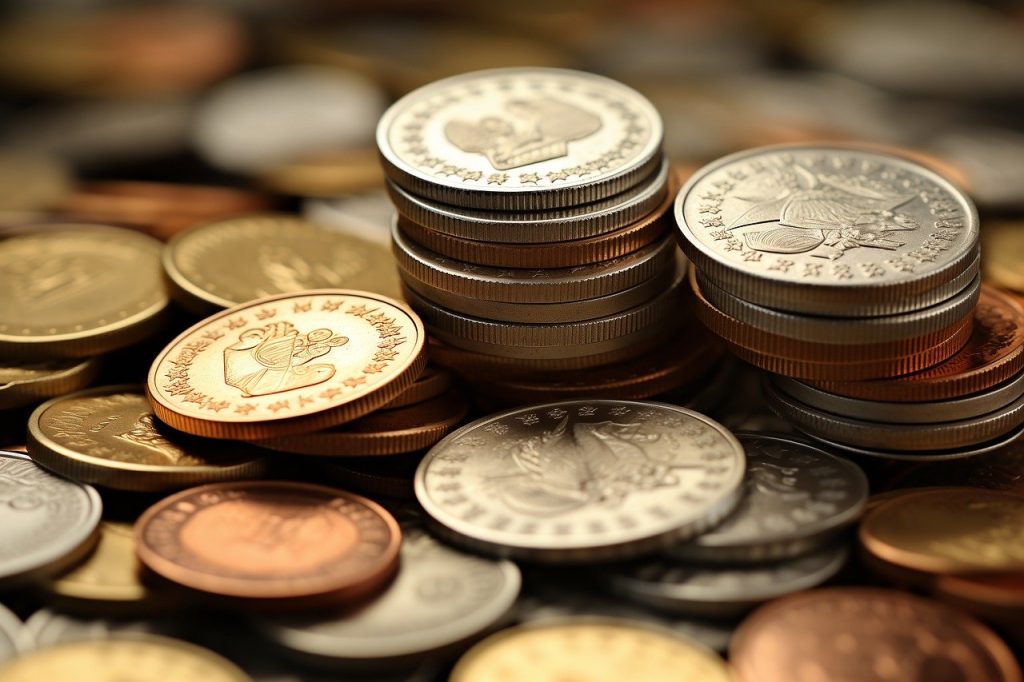The Fascination of Challenge Coin Collecting
Challenge coin collecting is a captivating hobby that has grown in popularity over the years. Originally rooted in military tradition, challenge coins have become sought-after collectibles for enthusiasts from all walks of life. These unique coins, often beautifully designed and rich in history, offer a tangible connection to various organizations, events, and moments in time. Whether you’re drawn to the artistry, the stories behind the coins, or the thrill of the hunt, starting a challenge coin collection can be an exciting and rewarding journey. In this article, we’ll provide 11 beginner tips for challenge coin collectors to help you get started and make the most of this fascinating hobby.
1. Understand the History and Significance of Challenge Coins
The Origins of Challenge Coins
Challenge coins have a long and storied history, dating back to World War I. Initially used by military units to foster camaraderie and loyalty, these coins were given to soldiers as a token of membership and identity. Over time, the tradition spread to other branches of the military and beyond, becoming a symbol of honor, recognition, and unity.
Example: A challenge coin from a World War II unit might feature the unit’s insignia and a motto reflecting their mission, offering a glimpse into the past and the values upheld by its members.
Expansion Beyond the Military
Today, challenge coins are used by various organizations, including law enforcement, firefighting, corporations, and community groups. They commemorate special events, recognize achievements, and build team spirit. Understanding the diverse uses and meanings of challenge coins can enhance your appreciation as a collector.
Example: A police department’s challenge coin collectors might celebrate the bravery and dedication of its officers, featuring symbols like badges, shields, or thin blue line imagery.
2. Decide on a Focus for Your Collection
Choosing a Theme or Specialty
As a beginner, it’s helpful to choose a focus or theme for your collection. This can provide direction and make the collecting process more manageable. You might choose to collect coins from a specific military branch, coins commemorating certain events, or coins from different law enforcement agencies.
Example: A collector might specialize in collecting challenge coins from naval units, focusing on coins that feature ships, anchors, and other nautical symbols.
Exploring Different Categories
There are many categories of challenge coins, each with its own unique appeal. Some collectors focus on historical coins, while others are drawn to coins from special events or limited editions. Exploring different categories can help you find what interests you most.
Example: A collector interested in history might seek out challenge coins from significant military campaigns or historical reenactments.
3. Start with a Budget and Build Gradually
Setting a Budget
It’s essential to set a budget before you start collecting challenge coins. Coins can vary significantly in price, depending on factors like rarity, condition, and demand. Having a budget will help you prioritize your purchases and avoid overspending.
Example: A beginner collector might set a monthly budget of $50 for purchasing new challenge coins, gradually building their collection over time.
Building Your Collection Gradually
Collecting challenge coins is a marathon, not a sprint. Start small and build your collection gradually. Focus on acquiring coins that interest you and fit within your budget. Over time, your collection will grow and reflect your unique tastes and interests.
Example: A new collector might begin by purchasing a few affordable challenge coins from local military surplus stores or online auctions.
4. Learn About Coin Grading and Condition
Understanding Coin Grading
Coin grading is a system used to assess the condition and quality of a coin. Factors like wear, scratches, and overall appearance are considered when grading a coin. Understanding coin grading can help you make informed decisions when buying and selling challenge coins.
Example: A coin in “mint condition” has no wear and is as pristine as when it was first minted, making it more valuable than a coin with noticeable wear and tear.
Considering the Condition of Coins
The condition of a challenge coin can significantly impact its value and desirability. While some collectors prefer coins in mint condition, others may value coins with historical wear that tells a story. Decide what matters most to you as a collector.
Example: A collector interested in the historical significance of a coin might value a well-worn challenge coin from a notable military unit, appreciating the history it represents.
5. Join Online Forums and Collector Communities
Connecting with Other Collectors
Joining online forums and collector communities can be a valuable resource for beginner challenge coin collectors. These platforms allow you to connect with experienced collectors, share knowledge, and discover new coins. It’s also an excellent way to stay informed about upcoming events, auctions, and trade opportunities.
Example: A collector might join a military coin forum to learn more about specific unit coins and connect with others who share their interest in military history.
Participating in Discussions and Exchanges
Engaging in discussions and exchanges with other collectors can deepen your understanding of challenge coins and the hobby as a whole. You can ask questions, share your collection, and even participate in trades or sales.
Example: A collector might participate in a forum discussion about the history of a particular challenge coin, gaining insights and information from other members.
6. Attend Coin Shows and Conventions
Exploring Coin Shows
Coin shows and conventions are excellent places to discover new challenge coins, meet other collectors, and learn more about the hobby. These events often feature dealers, exhibitors, and experts who can provide valuable insights and offer a wide range of coins for sale.
Example: A collector might attend a local coin show to browse various dealers’ collections, find rare coins, and connect with fellow enthusiasts.
Networking with Dealers and Experts
Attending coin shows also provides an opportunity to network with dealers and experts. Building relationships with these individuals can be beneficial for finding rare coins, getting appraisals, and staying informed about market trends.
Example: A collector might develop a relationship with a dealer who specializes in military challenge coins, gaining access to exclusive deals and expert advice.
7. Research and Verify the Authenticity of Coins
Researching Coin History and Provenance
Before purchasing a challenge coin, it’s essential to research its history and provenance. Understanding the background of a coin can help you determine its authenticity and value. Look for reputable sources and references to verify the coin’s origins.
Example: A collector interested in a challenge coin from a famous military unit might research the unit’s history and look for documentation or references to confirm the coin’s authenticity.
Avoiding Counterfeits and Reproductions
Unfortunately, the popularity of challenge coin collecting has led to an increase in counterfeit and reproduction coins. It’s crucial to be cautious and verify the authenticity of coins before purchasing them. Look for telltale signs of fakes, such as incorrect details, poor craftsmanship, or suspiciously low prices.
Example: A collector might consult with experts or use online resources to verify the authenticity of a challenge coin before making a purchase.
8. Display and Store Your Collection Properly
Displaying Your Challenge Coins
Displaying your challenge coins can be a source of pride and a way to share your collection with others. There are many options for displaying coins, including coin cases, shadow boxes, and coin stands. Choose a display method that protects the coins and showcases them attractively.
Example: A collector might use a glass display case with individual slots for each coin, allowing them to organize and display their collection neatly.
Storing Coins Safely
Proper storage is essential to protect your challenge coin collection from damage. Store coins in a cool, dry place, away from direct sunlight and humidity. Use protective holders or capsules to prevent scratches and keep coins in their best condition.
Example: A collector might store valuable challenge coins in airtight capsules and place them in a secure, climate-controlled environment.
9. Understand the Value and Rarity of Coins
Assessing Coin Value
The value of a challenge coin can be influenced by several factors, including rarity, condition, historical significance, and demand. Understanding these factors can help you assess the value of your collection and make informed buying and selling decisions.
Example: A limited-edition challenge coin from a significant military event might be more valuable due to its rarity and historical importance.
Recognizing Rare and Unique Coins
Some challenge coins are considered rare or unique due to limited production runs, special designs, or historical connections. Identifying these coins can add depth and value to your collection.
Example: A collector might seek out challenge coins that were only produced for a specific military operation or special event, recognizing their rarity and uniqueness.
10. Document and Catalog Your Collection
Keeping Detailed Records
Documenting and cataloging your challenge coin collection is essential for organization and record-keeping. Keep detailed records of each coin, including information about its origin, condition, value, and any relevant history. This documentation can be useful for insurance purposes, appraisals, and future reference.
Example: A collector might create a digital catalog of their collection, including photos and descriptions of each coin, along with purchase receipts and provenance documentation.
Tracking Your Collection’s Growth
As your collection grows, tracking its development can be rewarding and informative. Keeping a log of new acquisitions, trades, and sales can help you understand your collection’s evolution and make informed decisions about future additions.
Example: A collector might maintain a journal or spreadsheet documenting each coin’s acquisition date, source, and purchase price, tracking the growth of their collection over time.
11. Enjoy the Journey and Share Your Passion
Appreciating the Hobby
Challenge coin collecting is a rewarding and enjoyable hobby that offers opportunities for learning, exploration, and connection. Take the time to appreciate the artistry, history, and stories behind each coin in your collection. Remember, the value of your collection isn’t just in the coins themselves but in the experiences and knowledge you gain along the way.
Example: A collector might take pleasure in researching the history of a particular challenge coin, discovering new details about the organization or event it represents.
Sharing Your Collection with Others
Sharing your passion for challenge coin collecting with others can enhance your experience and build a sense of community. Whether through online forums, local clubs, or social media, connecting with fellow collectors can lead to new friendships, knowledge, and opportunities.
Example: A collector might start a blog or social media account to showcase their collection, share insights, and connect with other enthusiasts worldwide.
Starting Your Challenge Coin Collection Journey
Challenge coin collecting is a captivating hobby that offers endless possibilities for exploration and discovery. As a beginner, these 11 tips can help you get started on the right foot, guiding you through the basics of collecting, understanding the significance of coins, and building a meaningful collection. Whether you’re drawn to the artistry, history, or stories behind these unique tokens, challenge coin collecting can be a fulfilling and enriching experience.
As you embark on your journey as a challenge coin collector, remember to enjoy the process, learn from your experiences, and connect with others who share your passion. With time, patience, and curiosity, you’ll build a collection that reflects your interests and tells a story of its own.
If you are interested in high-quality custom made challenge coins, you can fill out one of our FREE quote forms or call us at 800-335-2403.



